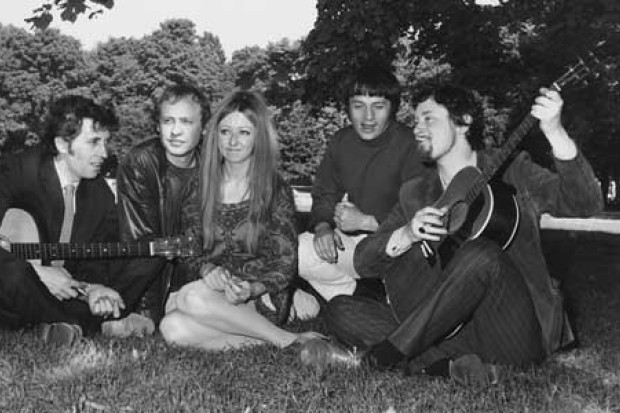CD Reviews: Malachy Bourke & Donnacha Dwyer
Bourke and Dwyer: Traditional Irish Music on Fiddle, Pipes and Bodhrán
Bourke and Dwyer is a CD by two well-known musicians, Malachy Bourke (now Galway-based but formerly Dublin) and Donnacha Dwyer (Dublin), containing thirteen tracks of both instruments combined and playing solo. Accompaniment is, unusually by today’s standards, kept to a minimum other than the occasional and unobtrusive hum of the bodhran played by Malachy’s father, Brian Bourke. Add to this the fact that there is no arrangement or newly composed tunes, this recording seems to oppose convention, daring in its straightforwardness.
It is obvious on first listening that these two musicians are acutely aware of the nuances in each other’s playing. Fiddle and pipes are well balanced, and tunes are played at a relatively quick tempo that the players are obviously totally comfortable with. Tune selections provide an insight into the musical perspective of the musicians – ‘Páidín O’Rafferty’, ‘Maids of Mount Cisco’, ‘Poll Ha’penny’, ‘The Stack of Barley’, ‘Craig’s Pipes’, ‘Man of the House’ – standard settings of traditional standards. Not surprising considering Bourke’s debut solo recording, Draw the Bow in 2001, was described by Frankie Gavin as ‘pure undiluted solo Irish fiddle playing’ not affected by the ‘flash approach to the music which is all to common today’.
The opening jigs, ‘Páidín O’Rafferty’ and ‘Gander in the Pratie Hole’, are energetic and rhythmic, uilleann-pipe regulators punctuating the melody with a combination of rhythmic and sustained single-note chords to great effect.
Of the thirteen tracks, nine are jigs and reels. Terry Moylan, previously in JMI, has described this as ‘the common modern practice – the monoculture of wall to wall reel[s]’ (and in this case jigs). Given the standard of musicianship on this album it is a great pity that there is not a higher representation of tune types other than jigs or reels. The only set of hornpipes, however, ‘The Stack of Barley’ and ‘The Rights of Man’, are a treat, honest and unpretentious.
The five-part reel, ‘Colonel Fraser’, is a particular favourite among fiddle, pipes and flute players. It also happens to be a tune that many musicians regard as a showpiece of individual virtuosity, possibly due to the sequential and repetitive nature of the melody. For Bourke and Dwyer, however, the melody does the talking. Phrasing and rhythm take precedence over dexterity and showmanship.
There are three solo tracks; ‘Dark Lough na gCarr’ on pipes is played without sentimentality and, despite slight tuning difficulties, is carried off well. A pair of hornpipes, again on pipes, finishes with the ‘The Tailor’s Twist’, and Dwyer is not pressurised into employing tricks and gimmickry – pipers’ piping if you like! Bourke is a highly accomplished player of the fiddle. In a selection of reels including ‘The Boys of the Lough’, unconventionally he plays the first tune once and the second tune twice before returning to the first. This player is in real command of the instrument.
This is a plain-spoken and sincere recording of traditional music. Perhaps it will be viewed as too clean and dry for the sensibilities of some. It is, however, a fine recording for lovers of Irish traditional melody.
Published on 1 January 2007












